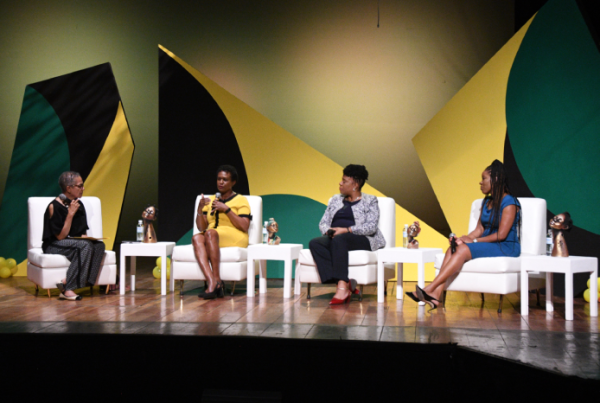Dr Damien King, economist and executive director of the Caribbean Policy Research Institute (CAPRI), is urging Jamaicans to remain hopeful, despite predictions that the local economy could be ravaged by the impact of the COVID-19 pandemic.
While forecasting that the Jamaican economy could contract by as much as five or ten per cent over the next year, Dr King insisted that the country will recover.
He was speaking in a recent interview, during the second instalment of the six-part, JN Circle Catch Up online series, organised by The Jamaica National Group. The series is part of the company’s efforts to help Jamaicans cope during and post the COVID-19 crisis.
“One thing we know for certain is that, no matter how deep the contraction and no matter how long the recovery, this is not the end of the economic world. The economy is going to come back eventually and surpass where it was before. Therefore, we need to bear that in mind, not only to have hope, but to be able to plan for that as well,” he stated.
Dr King noted that while there are still many uncertainties about how the COVID-19 will fully impact the country, he said sectors such as, tourism, restaurants and hotels could be hardest hit.
“The tourism sector is going to decline by something in the order of 80 per cent; and that is taking account of local tourism to some extent. Restaurants and hotels are going to decline by at least 80 per cent over the quarter,” he predicted.
He noted, however, that other industries such as, utilities and real estate, may not be as severely affected. “But even those sectors will see something like a five to ten per cent contraction.”
“Therefore, if we average out all of that, then it’s possible that going from where the economy was humming along normally, three months ago, to what is going to be the low point, we could be looking at a contraction of something like 20 to 25 per cent,” Dr King explained.
“And when you stretch that over the entire year, again not knowing how quickly the recovery is going to start, and how long it’s going to take, we could be looking at a contraction, year on year, of maybe five or ten per cent, which is unprecedented in the last 100 years,” the CAPRI executive added.
At the same time, Dr King pointed out that the pandemic will affect parts of the economy and society differently, noting that larger businesses will be better able to withstand the shock, while many small enterprises may collapse.
“Large businesses tend to be better capitalised. They tend to have more reserves and they are, therefore, in a better position to survive two or three or maybe even six months with a severe drop off in revenue,” he reasoned.
Dr King stated that smaller businesses tend not to have that kind of capital or cushioning.
“Therefore, the danger that we face is not only a large-scale economic contraction, but a hollowing out of that part of the economy, which small businesses tend to populate,” he said.
“Hence, by the time we come out of this, we’re not only going to have a smaller economy, we’re going to have a different structure of an economy with vacuum holes, which a lot of small businesses would occupy.”
The CAPRI executive director said banks and other lending agencies will, therefore, need to be in a lenient and forgiving mode; and be willing to extend and refinance the loans of small businesses, so that they are able to survive the tumultuous period.
“That’s really important, because if a lot of our businesses close it takes a longer time for new businesses to start up from scratch to replace them, versus existing productive capacity, simply just scaling back up,” he explained.
In his presentation, Curtis Martin, managing director, JN Bank said the bank is putting measures in place to assist businesses, which will be affected by the economic fallout.
“What JN has done is to carry out an analysis, in terms of stress testing the different sectors and estimating the potential impact. Whether the impact will be three, six, nine or twelve months; and we have also tailor-made different financing packages for the different sectors,” he explained.
He noted that companies can reach out to JN Bank to request a moratorium on their loans for six, nine or twelve months, depending on the expected period of the fallout.
“We will also consider extending the tenure of loans, to reduce the payments,” he informed.





